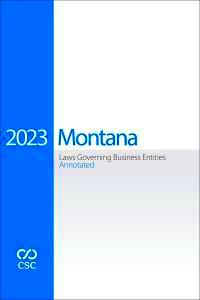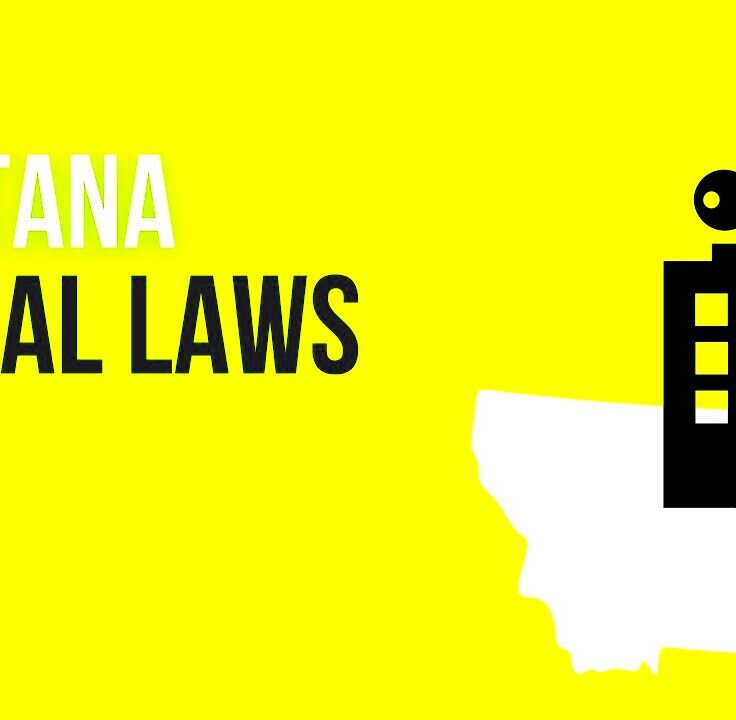Montana Business Laws Explained
Montana business laws are essential for anyone looking to start or operate a business in the state. They cover various aspects, including business structures, registration, and compliance with regulations. Understanding these laws helps business owners navigate the legal landscape effectively, ensuring they adhere to state requirements while protecting their interests.
Types of Business Structures in Montana

When starting a business in Montana, choosing the right structure is crucial. Each structure has its own advantages and disadvantages. Here are the main types:
- Sole Proprietorship: This is the simplest form, where one person owns and operates the business. It’s easy to set up, but the owner is personally liable for all debts.
- Partnership: In this structure, two or more people share ownership. Partnerships can be general or limited, affecting liability and management responsibilities.
- Corporation: A corporation is a separate legal entity that protects its owners from personal liability. However, it requires more paperwork and regulations.
- Limited Liability Company (LLC): An LLC combines the benefits of a corporation and a partnership, providing liability protection with less formal structure.
Choosing the right structure depends on factors like the number of owners, desired liability protection, and tax implications. Consulting with a legal expert can help in making the best choice.
Licensing and Registration Requirements
Before starting a business in Montana, it’s vital to complete the necessary licensing and registration processes. Here’s a step-by-step guide:
- Choose Your Business Name: Ensure your desired business name is unique and complies with state naming rules.
- Register Your Business: Depending on your business structure, register your entity with the Montana Secretary of State. This may include filing articles of incorporation or organization.
- Obtain Necessary Licenses: Depending on your industry, you may need specific licenses or permits. Check with local and state authorities for requirements.
- Get a Federal Employer Identification Number (EIN): If you plan to hire employees or operate as a corporation or partnership, you’ll need an EIN from the IRS.
- Understand Local Regulations: Some cities or counties in Montana have additional requirements, so check with local governments.
By following these steps, you can ensure that your business is legally compliant and ready to operate in Montana.
Understanding Business Taxes in Montana
Understanding the tax landscape is crucial for every business in Montana. The state imposes various taxes that can impact your bottom line. Familiarizing yourself with these taxes will help you plan effectively and stay compliant. Here’s a breakdown of the main business taxes in Montana:
- Corporate Income Tax: Corporations in Montana are subject to a corporate income tax, which is currently set at a rate of 6.75% on net income.
- Sales and Use Tax: Montana does not have a state sales tax. However, local jurisdictions may impose taxes on certain goods and services.
- Property Tax: Businesses are required to pay property taxes on real and personal property. The rates can vary by location and property type.
- Employee Payroll Taxes: Employers must withhold state income tax from employees’ wages. The rate varies based on income levels and filing status.
It’s important to consult with a tax professional to ensure you are meeting all tax obligations and taking advantage of available deductions and credits. Staying informed about tax laws can save your business money and keep it in good standing with state authorities.
Employment Laws and Regulations
Montana’s employment laws are designed to protect both employees and employers. These regulations cover various aspects of employment, including hiring, wages, and workplace safety. Here are some key areas of employment law in Montana:
- Minimum Wage: Montana has its own minimum wage, which is higher than the federal rate. As of 2024, the minimum wage is set at $9.95 per hour.
- Overtime Pay: Employees in Montana are entitled to overtime pay for hours worked over 40 in a workweek, typically at a rate of one and a half times their regular pay.
- Workplace Safety: The Montana Occupational Safety and Health Administration (MOSH) oversees workplace safety regulations to ensure a safe working environment for employees.
- Anti-Discrimination Laws: Montana prohibits employment discrimination based on race, color, religion, sex, national origin, age, disability, or marital status.
Understanding these laws is essential for employers to create a fair workplace and avoid legal issues. It’s advisable to stay updated on any changes in employment legislation to remain compliant.
Compliance with Environmental Regulations
In Montana, businesses must adhere to various environmental regulations designed to protect natural resources and public health. Compliance with these regulations is not only a legal requirement but also a crucial part of being a responsible business. Here are some key points to consider:
- Permitting: Many businesses need permits for activities that may impact the environment, such as waste disposal, water use, and air emissions. Check with the Montana Department of Environmental Quality (DEQ) for specific requirements.
- Waste Management: Businesses must follow regulations for hazardous waste disposal. This includes proper labeling, storage, and disposal of hazardous materials.
- Water Quality: Regulations govern water usage and the discharge of pollutants into water bodies. Businesses must obtain permits if their operations affect water quality.
- Air Quality: The DEQ sets standards for air emissions from industrial activities. Businesses may need to implement measures to control emissions and meet regulatory standards.
Being proactive about environmental compliance can prevent legal troubles and promote sustainability. It’s advisable to conduct regular audits and consult with environmental experts to ensure your business is in line with all regulations.
Dispute Resolution and Business Litigation
Disputes in business are common, and knowing how to resolve them can save time and money. Montana offers several options for dispute resolution, allowing business owners to choose the best path for their situation. Here’s an overview of the available methods:
- Negotiation: This is often the first step in resolving a dispute. Both parties discuss their issues and try to reach a mutually beneficial agreement without formal proceedings.
- Mediation: A neutral third party, the mediator, helps facilitate discussions between disputing parties. Mediation is non-binding, meaning no one is forced to accept the mediator’s suggestions, but it can lead to a settlement.
- Arbitration: In arbitration, a neutral third party makes a binding decision based on the evidence and arguments presented. This method is usually quicker and less formal than litigation.
- Litigation: If other methods fail, parties may resort to litigation, which involves going to court. This process can be lengthy and expensive, but it is sometimes necessary to protect your rights.
It’s essential for business owners to be aware of their options and choose the best approach based on the specific circumstances of their disputes. Consulting with a legal professional can provide guidance and help navigate these processes effectively.
Frequently Asked Questions
Understanding Montana business laws can raise many questions. Here are some common queries that business owners often have:
- Do I need a business license in Montana?
- Yes, most businesses need a license to operate legally. Check local and state requirements for specific licensing.
- What is the minimum wage in Montana?
- The minimum wage in Montana is $9.95 per hour, which is subject to change based on state laws.
- How do I register my business?
- You can register your business by filing the necessary documents with the Montana Secretary of State, depending on your business structure.
- What are the tax rates for businesses in Montana?
- Montana has a corporate income tax rate of 6.75%, along with various other taxes that may apply depending on your business type.
- What should I do if I have a business dispute?
- Consider starting with negotiation or mediation before moving to arbitration or litigation. Consulting with a lawyer can help you decide on the best approach.
Conclusion
Navigating Montana’s business laws is essential for anyone looking to establish or manage a business in the state. From understanding the different business structures and tax obligations to knowing employment laws and dispute resolution options, being informed is key to success. Compliance with regulations not only helps avoid legal issues but also contributes to a thriving business environment.
By staying educated and seeking professional advice when necessary, business owners can ensure they are on the right path. Montana offers various resources and support for entrepreneurs, so take advantage of them to make your business journey smoother and more successful.


